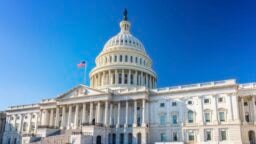The controversy over concert ticket pricing seems to have no end, and Ticketmaster – the dominant ticket seller in North America – is taking the brunt of the storm.
The US Department of Justice is once again investigating the company over alleged anti-competitive practices, and a congressional committee has taken up the cause, ostensibly on the side of consumers who are complaining about what some see as increasingly unreasonable prices.
This comes on the heels of some high-profile controversies over ticket prices and sales. In 2022, fans of Bruce Springsteen were up in arms over “platinum” tickets for the Boss’s tour that sold for as much as USD $5,000.
And in November, Ticketmaster’s sales system appeared to crash under the weight of enormous demand for tickets to Taylor Swift’s The Eras tour.
In a new – and very wide-ranging – interview on the Bob Lefsetz Podcast, Michael Rapino, CEO and President of Ticketmaster parent Live Nation Entertainment, addressed all of these issues and more.
Rapino has been CEO/Prez of Live Nation since 2005, and steered the company through its much-debated merger with Ticketmaster in 2010.
More recently, he skilfully guided Live Nation through the uncertainty of the pandemic years (see 2020 and 2021 below), while delivering all-time-record annual revenues and ticket sales in FY 2022 ($16.68bn in revenue; over 550m tickets).
(Rapino was well rewarded for this performance: he earned USD $139 million from Live Nation in 2022, including $116.7 million in stock awards.)

Rapino’s appearance on the Lefsetz podcast was a chance to make a positive public case for his company more forcefully – something he says he neglected to do in the past.
MBW listened in; here are five things we learned…
1) LIVE NATION/TICKETMASTER ISN’T A MONOPOLY, says Rapino, AND THE PROFIT MARGINS ARE THE PROOF
According to US Senator Amy Klobuchar, who sits on the Senate Committee for Consumer Protection, Ticketmaster controls about 70% of the music ticket market in the US.
“In truth, there is no other choice. It is a monopoly,” she told the media.
However, Michael Rapino argues the idea that Ticketmaster (under Live Nation’s ownership) is a monopoly is based on a misconception of what the company does, and how the live music business operates.
Venues themselves determine who sells tickets for them, and artists, through their agents, set the price of tickets, Rapino explained on the Bob Lefsetz Podcast.
“In the simplest context, a venue, wherever you are, decides who is going to be their ticketing company,” Rapino said.
He said there is “irony” in the idea that Ticketmaster controls the prices for large-scale shows, because “generally that venue [owner] is a billionaire that is building a billion-dollar-plus arena or stadium.”
The arena puts out a request for proposals, and ticketing companies such as Ticketmaster, AEG and SeatGeek put in proposals.
“You wouldn’t find a monopoly in history that has a 10%, 11% margin. Monopoly means you have enough pricing power to have a very high margin return… [this] is a low margin business at the core.”
Michael Rapino, Live Nation
Ultimately, in Rapino’s view, it’s the venues that really have pricing power.
“Although it doesn’t seem like it on Twitter at times, it’s a competitive process. … We just lost the stadium in Washington to SeatGeek. So what [venues] ask for, someone will pay.”
In most cases, the ticket seller takes a 20% cut of the ticket price, with the rest going to the venue and the artist. That percentage can increase to 25% or 30% on higher-end seats, Rapino explained.
For Rapino, the smoking-gun evidence that ticket-selling isn’t a monopolized business is the profit margins. He says his company’s overall profit margin is around 10% or 11%, with margins from ticket sales typically in the 2% to 4% range. LN’s sponsorships business, he says, sees much higher margins of around 35%.
“You wouldn’t find a monopoly in history that has a 10%, 11% margin,” he told Bob Lefsetz. “Monopoly means you have enough pricing power to have a very high margin return. So… [this] is a low-margin business at the core.”
2) ‘ALL-IN’ TICKET PRICING COULD BUILD BACK TRUST WITH THE FANS
One major issue driving negative perceptions of the ticketing business are the additional fees added at checkout, which can often drive up the price of a ticket well beyond the initial price shown to ticket-buyers.
Often there will be a facility fee – an additional source of revenue for the venue – a credit card fee that may appear as part of a processing fee, and a service fee. In all, it can make a significant difference in the ticket price.
Live Nation’s most recent controversy over fees came earlier this year, when The Cure went on tour, making a point of limiting ticket prices, with the lowest tickets selling at around $20.
But then Cure fans went online, sharing screencaps of their Ticketmaster shopping baskets showing service fees, facility charges and processing fees that in some cases were higher than the $20 ticket itself, more than doubling the price. Cure frontman Robert Smith said he was “sickened” by the practice.
“Ticketmaster’s job has been to take that punch in the head for the industry. That’s been part of why they hire you. There’s no glory in being the ticketing company.”
Michael Rapino, Live Nation
Tickemaster responded by offering partial refunds on the fees.
“We went to the venues and said we’re going to reduce [the fees] by $10 and if you don’t want to join us, we’ll eat the difference,” Rapino said. “About half the venues said ‘Alright we’ll join you on that,’ and the others said ‘Good luck, eat it.’”
Rapino explained it like this: “The challenge in our industry is we have kept … the distribution cost outside of the price. Generally, when you buy something at Walmart or Target, it’s all built in [to the price]. In our business, for many reasons, it has stayed outside. We don’t think they’re junk fees, they’re not beautiful add-ons to make a ton of money.”
And Rapino says he would be happy to see the industry move to an “all-in” ticket pricing model, where fees will be included in the advertised price.
“We’re happy [that] Pearl Jam announced it today on their world tour,” he said, referring to the 90s alt-rock band’s announcement that it will have “all-in” ticket pricing for their shows.
“We’re talking to others,” Rapino added. “We would go all-in pricing tomorrow. We would love the industry to do it.”
But Rapino sees a lot of resistance to it in the industry. He says ticket sellers are worried about losing their competitive edge in marketing if they’re the first out of the gate to offer all-in ticket prices.
“If it’s a $46 ticket and $73 at checkout, you’re going to win [by advertising the ticket at] $43 on Google search every time.”
He noted that StubHub tried all-in ticket pricing several years ago, “and they ended up pulling out of it and said their business went down 15% or 20%. I think that scared people. … to date we probably all have been scared. You’re going to [have to] do it on your own. The artists aren’t going to give you a break.”
He adds that even if moving to all-in pricing isn’t “rational,” with the fans frustrated as they are, “we’ve got to build some trust back.”
Rapino said: “We haven’t done a good job as an industry, and especially on my front as Live Nation/Ticketmaster, explaining out loud what happens with the ticket fees, how they’re set. There hasn’t been a big motive, historically, for me to … say the venue, my client, is taking most of the money, or the artist is setting the ticket price.
“Ticketmaster’s job has been to take that punch in the head for the industry. That’s been part of why they hire you. There’s no glory in being the ticketing company.”
3) DYNAMIC PRICING HAS BEEN A PR HEADACHE, BUT THE INDUSTRY IS LEARNING TO DO IT BETTER
The arrival of “dynamic pricing” – ticket prices rising or falling in real-time in response to demand – has proven to be another PR headache for ticket sellers.
The controversy over Bruce Springsteen tickets in 2022 was a perfect example, with “platinum” tickets – those for particularly desirable locations in the arena – rising to as much as $5,000 per person.
Yet it’s a practice that Rapino defends, arguing that many businesses, including airlines and hotels, have long practiced dynamic pricing.
“Most dynamic products aren’t charging the same price on the last day,” he noted.
About five to eight years ago, ticket sellers “started saying the scaling shouldn’t be the same” for every show in every venue, Rapino explained.
“We started Pricemaster [Ticketmaster’s dynamic pricing app] years ago to say to artists that a Friday night in New York should not be the same as a Tuesday in Cleveland.”
“As an industry, we’re learning how to price dynamic tickets to demand. We’re slowly putting better rules in place to do it smartly.”
Michael Rapino, Live Nation
In Rapino’s view, there is a very good reason for dynamic pricing, which is that, when there is high demand for a particular show, but that show price is capped, it’s the scalpers who end up with the profit. Artists themselves should learn to price their tickets “closer to market,” Rapino asserts.
Regarding the controversy over the Springsteen tour, “only about 1% of the seats were over $1,000,” Rapino said. In his view, all the dynamic pricing did was transfer the profits from scalpers to the venue and Springsteen himself.
In Springsteen’s previous tour, “the tickets went right to the scalper and resold for $2,000. So this time we said, ‘Bruce, you should actually get that money. But let’s make sure we keep the rest of the house cheap.”
Still, Rapino admits the industry may have gone overboard with dynamic pricing coming out of the pandemic, as the concert business boomed and demand soared.
“We increased more of the allocation [to dynamic pricing]. The drug got a little more sexy. We started putting more of the allocation to increase the gross.”
He added: “I think we’re learning now. We’ve got to watch … the definition of ‘platinum’. We better make sure it’s [actually] a platinum seat. And if we’re going to [use dynamic pricing], we better put better rules in place [about] when we change ticket pricing. … So, as an industry, we’re learning how to price dynamic tickets to demand. We’re slowly putting better rules in place to do it smartly.”
4) THE TAYLOR SWIFT/Ticketmaster INCIDENT WAS ACTUALLY A VICTORY AGAINST BOTS
In the digital age, scalping has changed completely. Long gone are the days when individuals showed up at the box office early to buy tickets, then sold them outside the venue door.
Today, scalping is a big business carried out by bots that buy large chunks of tickets and resell them on the secondary market with large mark-ups.
And in Rapino’s view, Live Nation is the only entity in the US market – including the government – that’s trying to do something about it. In fact, the Taylor Swift controversy happened precisely because of efforts to stop bots from buying out the house, Rapino said.
They tried to break the doors down. The reality is we stopped them. We had to slow the system, but we kept them out… at the end of the day we ended up delivering 2 million tickets to Taylor Swift fans.”
Michael Rapino, Live Nation
“If you go on the dark web, you can buy a whole bunch of software to try to hack the latest on-sell,” he said. “It’s a very organized and [also] unorganized under-web of the $5 billion people are trying to access,” he added, referring to his estimate of what the secondary ticket market is worth.
With respect to bots, “it’s an arms race, it’s an impossible mission right now,” Rapino said.
He finds it perplexing that Ticketmaster was blamed for the Taylor Swift situation, likening it to blaming Prada for someone trying to break into the Prada store in Beverly Hills to steal high-end purses.
If people saw videos of this hypothetical break-in at said Prada store, suggested Rapino, they’d say: “What’s going on with the Beverly Hills Police Department, we’ve got to staff up.”
“They don’t blame the product,” Rapino quipped. “So what happened with Taylor Swift was the Prada story.
“They [the bots] tried to break the doors down. The reality is we stopped them. We had to slow the system, but we kept them out. They didn’t steal one bag, and at the end of the day we ended up delivering 2 million tickets to Taylor Swift fans.”
He added: “We’re proud at the end of the day that the purse didn’t get stolen. We were able to verify [buyers’ identities] and make sure the tickets got into the hands of fans.”
5) DEVELOPING MARKETS AND NEW UPSCALE EXPERIENCES ARE TWO AREAS OF OPPORTUNITY for Live Nation in the years ahead
When asked where the future opportunities are for Live Nation, Rapino stressed two areas: Developing markets, particularly Latin America, and a focus on high-end, premium experiences for music fans.
“This is an industry that … still doesn’t do a great job experientially,” he said. “A lot of great venues will be built, [there will be] better experiences, higher-end premium experiences.”
But Rapino saves his enthusiasm for Live Nation’s prospects for further international expansion.
“We like international. You’re going to see a lot of expansion in South America, Asia, you’re going to see us expanding,” Rapino said, noting Live Nation’s 2021 purchase, for over $400 million, of a majority stake in Mexico-based promoter OCESA.
“We can see 150 million to 175 million [fans coming to Live Nation-promoted shows annually] over the next five years.”
Michael Rapino
In these markets, you often have “crappy arenas,” Rapino said, not mincing words.
“There’s maybe a festival, maybe a crappy ticketing system, no sponsors, so you kind of professionalize these businesses when you roll in. We just launched Ticketmaster Brazil. We’re going to build an arena and a club there, we brought Lollapalooza there,” he said, adding that Live Nation brought Lollapalooza to India as well.
Live Nation-promoted shows brought in 50 million fans just four or five years ago, and in 2022, that rose to 125 million, said Rapino.
“We can see 150 million to 175 million over the next five years,” Rapino added.
“The pie gets bigger globally, and we can get bigger before even taking more market share.”
You can listen to Michael Rapino’s full interview on the Bob Lefsetz podcast through here.Music Business Worldwide





